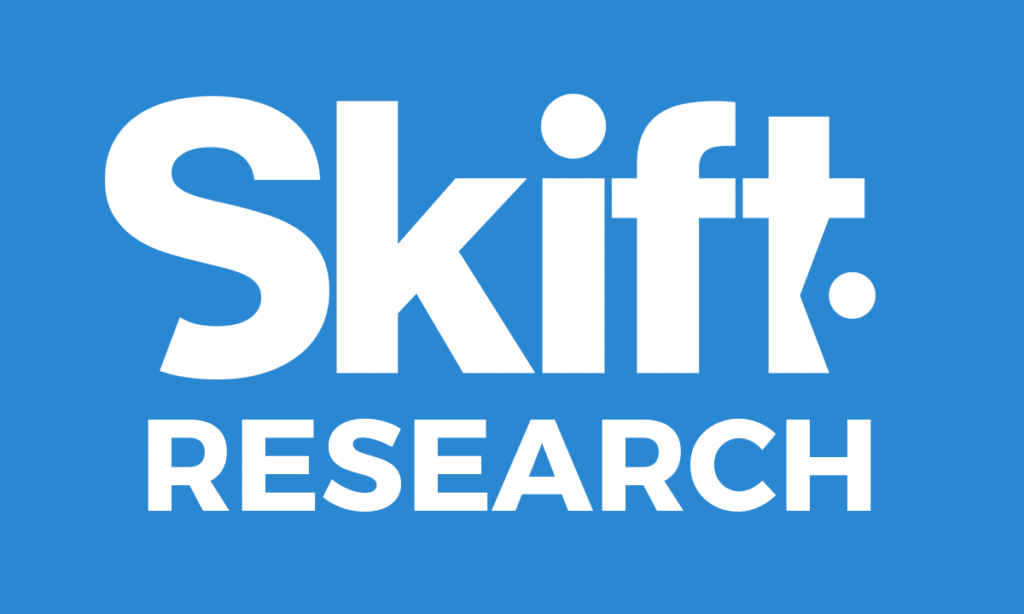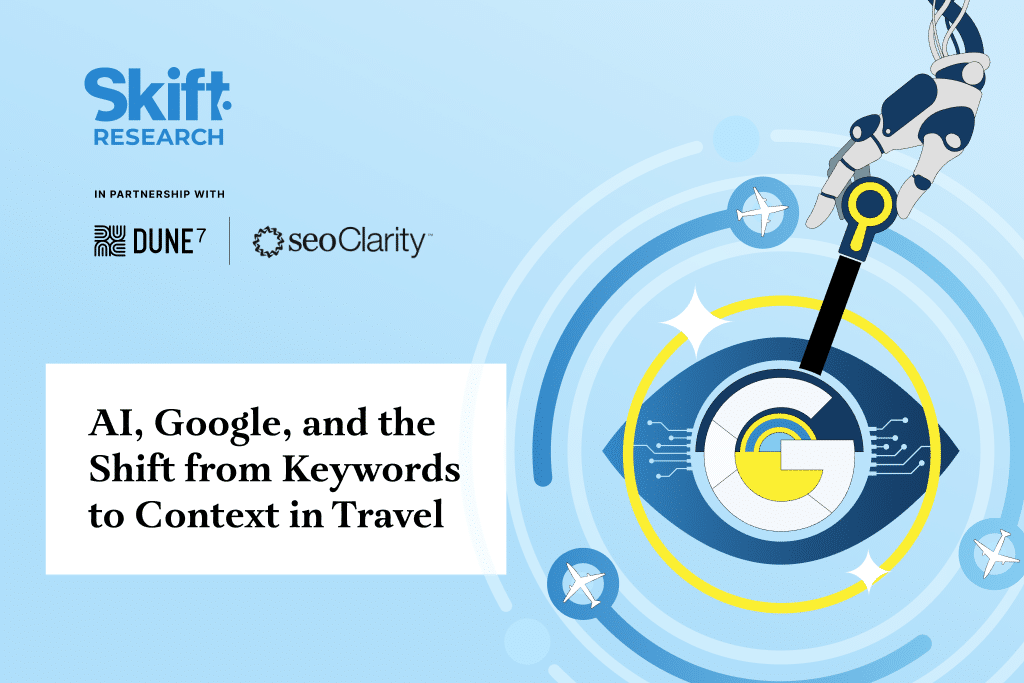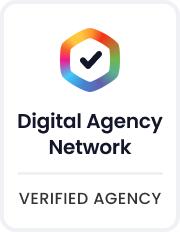Presenting the Travel AI Overview Visibility Index, an analysis of nearly 500,000 keywords to understand the impact that AIOs are having on the global travel industry.
A report from:

In conjunction with:

Currently, the travel industry at large doesn’t have a clear, accurate picture of the changing search landscape within AIOs. Google notoriously obfuscates AIO visibility and traffic data from all of their popular analytics tools.
That’s why we teamed up with Skift and seoClarity to create the Travel AIO Visibility Index, the most comprehensive of its kind for the global travel industry.
Our goal is for the index to become the definitive source of truth for the travel industry in a rapidly changing search environment.
Setting the scene
For decades, the way in which consumers found information on the web remained largely unchanged. Classic Google search, aka 10 blue links, has dominated the search landscape since the dawn of the internet era.
Now, in 2025, we’re experiencing a significant shift in consumer behavior, driven by rapid deployment and use of generative AI technologies.
Nowhere is this more pronounced than in the travel industry. According to the first-ever Travel AIO Visibility Index, AIO visibility in the travel sector has tripled since November 2024.
We see similar trends when analyzing an anonymized segment of Dune7 client data:
- Between 4-12% of all ranking keywords trigger an AIO
- Organic traffic has declined on average, however, in some cases, AIOs are responsible for driving up to 8% of total organic traffic
- The vast majority of terms triggering AIOs are Informational or Navigational (top of funnel). However, we’re starting to see more and more AIOs appearing for bottom of funnel terms
However, despite what the skeptics say, Google search isn’t going anywhere as a starting point for travel discovery.
Recent studies suggest that Google still dominates the search landscape, with an 89% share of search. This is unlikely to change substantially in 2025 given innate consumer habits and the vast resources afforded to Google’s product development organization.
Just recently, Google rolled out AI Mode to the masses in an attempt to recreate a conversational search interface more akin to an LLM platform, such as chatGPT.
What is changing is the way Google itself returns search queries. AI overviews (AIOs) now are the norm and travel brands everywhere are scrambling to adapt.
Our Methodology
Working alongside Skift and enterprise SEO platform seoClarity, we created a vast database of nearly half a million keywords based on search volume for two of the largest travel industry sectors:
- Airlines: 97,165 keywords
- Hospitality: 369,734 keywords
The index tracked keywords related to OTAs within the two sample sets of data above. However, breaking these out into a separate category was challenging given the overlap in search intent (a traveler searching a generic term such as “hotels in new york” could end up clicking on a direct hotel site or an OTA on the search engine results page; SERPs)
We tracked searches conducted on both desktop and mobile, aligned with modern browsing behaviors. Both branded (e.g. "Marriott hotel NYC") and unbranded (e.g. "hotels NYC") terms were included.
Tracked AIO data trends included:
- Overall AIO prevalence in SERPs
- Number of keywords triggering an AIO
- Types of keywords triggering AIOs
- Brand visibility within AIOs
The study was conducted from November 2024 to April 2025, during a very active development period for Google’s AI-enabled search products.
What does the data tell us? Here’s some initial insights:
- AIO visibility in the travel sector has tripled since November 2024
- 20 websites are cited within nearly 70% of travel-related Google AIOs, on average
- In many cases, especially with Flight searches, media and user generated content (UGC) sites are gaining AIO visibility at the expense of airlines and OTAs
- Not a single hotel direct website ranks in the top 10 most cited sources in Hotel related AIOs (Marriott is number 13)
Download the full report, available only from Skift Research, to gain full visibility into:
- ✨ How AI Overviews work
- ✈️ The winners and losers in travel AIO visibility
- 🏞️ AI trip planning penetration among consumers
- 🔮 The implications for travel brands moving forward



No comments.